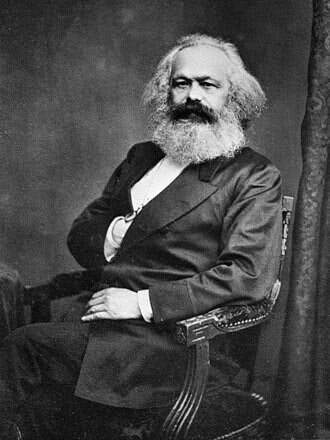
Karl Marx - Issue 6
Published by Ross Duran on 9 March 2021 at 13:50

Karl Marx was a German philosopher and economist perhaps best known for his work on Das Kapital (1867-1883) and the Communist Manifesto (1848). Marx was strongly anti-capitalist, he argued that capitalism led to insecurity, as a worker was expendable if they cost too much, and instability. He argued that the constant drive of capitalists to create more profit led to a crisis of overproduction where the supply of goods became too great, leading to lower prices and then competition between firms would further reduce these prices. This competitiveness necessitated lowering the price of production to remain profitable and, therefore, the labourers either had their wages reduced or were made redundant, a process which, he argued, would repeat itself continuously due to the inherent greed of capitalists to generate more profit. Marx, therefore, argued that the interests of the capitalists are adverse to that of the urban proletariat. The primitive accumulation, which, in his eyes, entailed the seizure of land by the capitalists to create a landless proletariat, created a power imbalance where the capitalists own the means of production, such as the factory and the output good, whereas the proletariat can either sell their labour or starve which forces them to take lower pay than what their labour is worth just to survive. Therefore, this conflict between the two classes fuels the exploitation of the labourers by the elite. This argument forms the basis for Marx’s theory of history which he argued was the conflict between the oppressed and oppressive classes where revolution by the oppressed would occur until a fully egalitarian society was formed, Marx’s communist utopia. In this utopia, Marx envisioned that the means of production would be owned by the “masses” with no private property or inherited wealth where collectivism meant the end of conflict and economic stability as there could not be violence based on the right to land. In this state, Marx argued that everyone would essentially be free, oppressed by no one.


Create Your Own Website With Webador